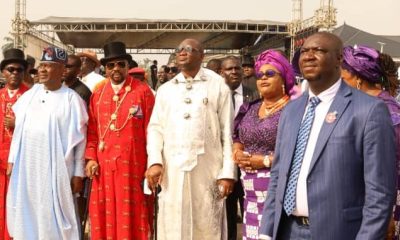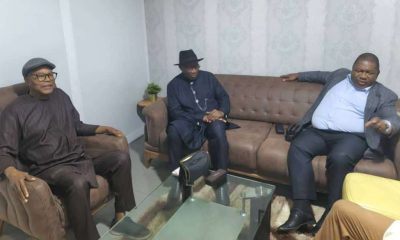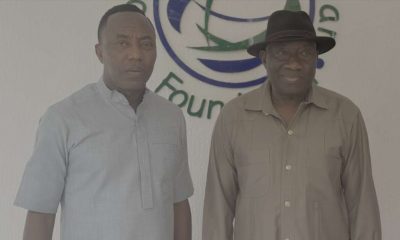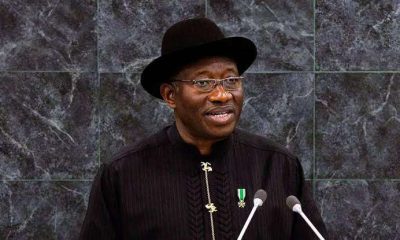Headlines
Jonathan Denies Accusing Buhari of Boko Haram Ties, Says Comments Were ‘Grossly Misrepresented’

Former President Goodluck Jonathan has firmly denied claims that he accused the late President Muhammadu Buhari of having links with Boko Haram, describing the reports as false and misleading.
In a statement issued on Saturday by his media adviser, Ikechukwu Eze, Jonathan clarified that his recent remarks were taken out of context and never implied that Buhari had any connection with, or offered support to, the terrorist group.
The controversy stems from Jonathan’s speech on Friday at the public presentation of Scars, a book authored by former Chief of Defence Staff (CDS) Lucky Irabor. During the event, Jonathan recalled that Boko Haram once named Buhari as one of those they wanted to negotiate on their behalf with the federal government.
Jonathan, who led Nigeria between 2010 and 2015, explained that the insurgents mentioned Buhari after his administration set up committees to explore dialogue with the group.
However, Garba Shehu, former presidential spokesperson, dismissed the remarks as “false and politically motivated.”
Eze explained that Jonathan’s comments were part of a broader reflection on Nigeria’s security challenges and aimed to highlight Boko Haram’s deceptive tactics during its early years.
“We wish to make it abundantly clear that the former President’s comments were grossly misrepresented,” the statement read.
“At no time did Dr Jonathan suggest, imply, or insinuate that President Buhari had any connection with Boko Haram or that he supported the group in any form.”
According to Eze, Jonathan was referring to a documented episode when various individuals and factions falsely claimed to represent Boko Haram and named prominent Nigerians as mediators without their consent.
“The point Dr Jonathan sought to make was that Boko Haram, in its characteristic deceit, often invoked the names of respected public figures to sow confusion, exploit political divisions, and undermine public confidence in government,” he added.
Jonathan further argued that if the group truly saw Buhari as their negotiator, they could have ended their violent campaign when he became president.
Jonathan emphasized that Buhari, like every patriotic Nigerian, stood firmly against terrorism and was himself a target of Boko Haram attacks. He noted that both leaders, during their respective tenures, were committed to restoring peace and stability in the country.
Eze urged Nigerians to disregard misinterpretations of Jonathan’s remarks, reiterating the former president’s commitment to peace, unity, and the strengthening of democratic values.










